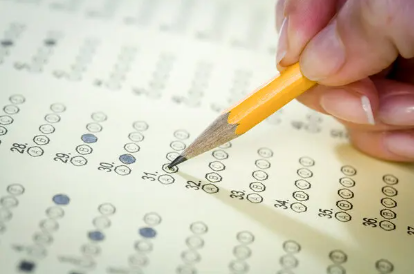As the school year comes to an end, students across all high school grade levels often find themselves facing mounting stress. This period can become particularly overwhelming, from upcoming exams and concerns about grades to deciding about college and contemplating what lies beyond graduation.
Compounding these pressures are the findings from the Stress in America 2020 survey conducted by the American Psychological Association, which sheds light on the heightened stress levels experienced by teenagers. Already burdened by the typical challenges of high school, teenagers have found their stress worsened by the ongoing pandemic. In 2020, around 43 percent of surveyed teens noted increased stress levels, while 45 percent struggled to focus on schoolwork. Additionally, many reported a significant decline in motivation. As the enduring obstacles of high school persist, they appear to have become more intricate, adding further strain on students’ mental and physical well-being.
What is stress? As defined by the World Health Organization, it can be understood as a state of worry or mental tension triggered by challenging situations. Stress is a natural human response that prompts us to address the obstacles and threats we encounter in our lives. While everyone experiences stress to some extent, how we respond to it is crucial to our overall well-being.
Why should you worry about stress? Let’s clarify that a certain stress level is a natural aspect of life and can sometimes be beneficial. Stress can serve as a motivator by driving us to accomplish tasks we might otherwise overlook. Positive stress, known as “eustress,” can ignite excitement and energy, such as anticipating a first date or performing on stage for the first time. However, excessive and prolonged stress can lead to both mental and physical health issues. When stressed, your body releases cortisol, which regulates blood pressure and immune function. If stress becomes chronic and cortisol levels remain consistently high, it can weaken your immune system, elevate blood pressure and hinder cognitive performance. In teenagers, the area of the brain responsible for regulating the stress response is less developed than in adults.
Consequently, stressed teens may endure prolonged periods of stress compared to adults. Experiencing prolonged stress can lead to various detrimental effects on your health. You may struggle to maintain regular sleep patterns, find yourself overeating, or encounter issues with digestion, cardiovascular health, or your immune system. Furthermore, chronic stress increases the likelihood of developing mental health disorders such as anxiety or depression.
How can students cope with stress? Students can combat stress through various strategies. According to Harvard Health Publishing, prioritizing at least 7 hours of sleep per night is a practical starting point. Additionally, engaging in activities such as taking mental breaks, practicing self-motivation, or listening to soothing music can significantly reduce stress levels. Harvard Health Publishing further suggests that seeking support from others, whether family members, friends, or a counselor, can dramatically improve overall health by providing an outlet to discuss and address stressors. We can also look at making time for ourselves. According to Duke, most students with high stress neglect their day-to-day life. Outside of school, remember always to make time for yourself, pick up a hobby, or even step away from work.
While stress may seem inevitable in the high school experience, it’s crucial to recognize its impact and take proactive steps to manage it. By prioritizing self-care, seeking support when needed and maintaining a balanced lifestyle, students can mitigate the adverse effects of stress and foster their overall well-being. Remember that mental health is as important as academic success, so don’t hesitate to ask for help and support. By addressing stress head-on, you can navigate the challenges of high school with resilience and emerge stronger academically and personally.






















